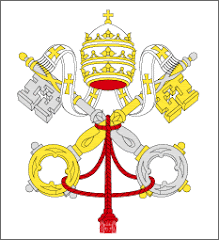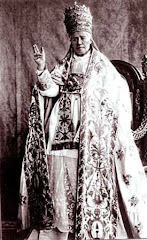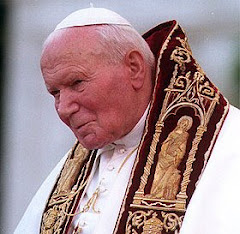The question of the place of belief within a culture dominated by the notion of self-validation via its ability to produce, progress, and make that which is ‘makable’ is one that may be more relevant today than at any other time. It is an issue taken up by Pope Benedict in his book Introduction to Christianity written before his elevation to the throne of St. Peter.
When the defining criteria for culture devolves from the credo and the essens (belief and knowledge of being) to the faciendum (faith only in the future of what can be made), the reduction of the human person to the status of object seems to be a natural consequence, and its effect on the place of belief in such a world is equally detrimental. The reduction of the human person and the alienation of belief are not unrelated events. Rather they represent a symbiotic relationship, although the ‘bios’ of ‘symbiotic’ does seem to be a mischaracterization of the dynamic of such a relationship when one considers that ‘life’ is almost never the priority of that system.
The revolution that has taken place is the dethronement of ultimate causes and, thus, the rejection of the absolute of intrinsic value and dignity. This has been replaced by the exalting of the scientific mindset in which the greatest possible good is to make and to continue to make with the goal of constant progress – better bodies, better sex, more money, etc. In short, narcissism, perversion, and greed become preferable to the transcendent and metaphysical reality of the nature of things. When these become the new virtues of a society, the old virtues are cast off as relics of the past unable to answer the more pressing needs of humanity which can only be answered by the things we see, touch, and make. That which is measurable can be used for greater and ever more evolved factums. That which is immeasurable can be used for nothing and must therefore be discarded as unnecessary. It is seen as a hindrance to the never-ending roll of the progress-ball. Belief, therefore, becomes a laughing matter if not something to be vehemently scoffed at.
When credo begins to demand that the world of faciendum acknowledge its claims regarding the intrinsic value of man, it is seen not as a voice of reason, but as a clown unable to remove its makeup even in the ‘real world’, unable to make itself relevant in a culture that is ‘all grown up’. What is necessary is a reevaluation of the method by which our credo is presented. Tough questions must be asked and honestly answered. Why is that which is most relevant, that is, the intrinsic dignity of man based on his being an image of God, still seen as irrelevant? Confronting the culture on its own terms, I believe, is the only way to present a credible apologetic for belief. It must be the goal of Christianity to clearly demonstrate the transforming effects of belief through clear and rational argument, effects that would certainly not go unnoticed in a world obsessed with constant progress. In this regard, Christianity and the modern world are in constant competition, as both see the need for constant progress towards perfection.
12 years ago



















3 comments:
Couldn't agree more. I think you have described the main difference between ancient/medieval man and modern man. Western thought, for the past 3,000 years, rests on the assumption that man should attempt to conform his mind to reality/being--the classical defintion of truth. Modern man attempts to conform reality/being to the mind--technology. For technological man, reality must be bent and molded for use. Reality/being has become a means. All that is becomes a means to some further end that is never thought of--the journey that has no destination.But because man is part of being, he too will become a means. Man will be swallowed up by his own philosophy. Ironically, a philosophy that claims to be the liberty of thought. Great blog.
Thanks for the observation, and thanks for checking out the blog.
Into. to Christianity.; Chap: "Belief in the world of today"; Pp. 37.; Ratzinger;
Well done.
DTM
Post a Comment